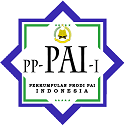REVITALISASI PENDIDIKAN ASWAJA AN NAHDLIYAH (KE-NU-AN) DALAM MENANGKAL FAHAM RADIKALISME DI SMK AL-AZHAR MENGANTI GRESIK
Abstract
The rise of radicalism ideology, became the main work of the madrasa as a guardian of Islamic ideology that rahmatan lil alamin.. A unique phenomenon was found by researchers in an educational institution, namely in the Al-Azhar Menganti Vocational School (SMK), a middle-level educational institution that is included in the shelter of the Darul Ihsan Menganti Islamic boarding school foundation. Al-Azhar Menganti Vocational School (SMK), at the beginning of the admission of new students, each new student was given material on religiousness (NU-an), and there was ta'lim muta'alim in the style of the cottage for Nahdlatul Ulama. In addition, the NU studies were a study that was the closing point at the end of each semester, as one of the objectives was to achieve Islam rahmatan lil alamin and efforts to win the rise of the radical movement. This study uses qualitative research methods that produce descriptive data in the form of written or oral words from people and behaviors that can be seen during the research process. Related to this is arranged on the background of this individual as a whole (intact) without any engineering. Some of the main capital invested in Al-Azhar Vocational School students, as a real effort to counteract the amount of radicalism in the world of education, one of which is by incorporating self-education into the school curriculum as a local substitute. In addition to the implementation sought by the al-Azhar Menganti Vocational School, it does not include several limitations in implementing Aswaja education (Ke-NU-An), which is translated, namely the number of books abroad Aswaja Nahdliyyin (Ke-NU-An), in the name of Aswaja (Ke-NU-An).
Keywords: Education; Radicalism Ideology; Aswaja ideology
Full Text:
15 - 25References
Ahyar, M. (2015). Membaca Gerakan Islam Radikal dan Deradikalisasi Gerakan Islam. Walisongo: Jurnal Penelitian Sosial Keagamaan, 23(1), 1–26.
Bassey, M. (1999). Case Study Research In Educational Settings. Buckingham. Philadelphia: Open University Press.
Felay, G. (2003). Ijtihad Politik Ulama’ Sejarah NU 1952-1967. Yogyakarta: LKIS Printing Cemerlang.
Fitrah, M., & Luthfiyah, L. (2017). Penelitian Kualitatif, Tindakan Kelas dan Studi Kasus. Suka Bumi: CV. Jejak.
Hilmy, M. (2015). Radikalisme Agama Dan Politik Demokrasi Di Indonesia Pasca-Orde Baru. MIQOT: Jurnal Ilmu-Ilmu Keislaman, 39(2).
Husna, S., & Yunus, M. (2016). Hasil-Hasil Muktamar Ke-33 Nahdlatul Ulama. Jakarta: Lembaga Ta’lif wan Nasyr PBNU.
Inbar, E., & Frisch, H. (Eds.). (2008). Radical Islam and international security: challenges and responses. London ; New York: Routledge.
Moleong, L. J. (2011). Metodologi Penelitian Kualitatif. Bandung: PT Remaja Rosda Karya.
Muctoboh, H., Sukawi, Z., Kholik, Asmaji, Shidiq, N., Mahfudz, … Amin, Y. (2017). Pengantar Studi Aswaja An-Nahdliyah. Yogyakarta: LKIS Printing Cemerlang.
Muzadi, A. M. (2007). NU dalam Perspektif Sejarah dan Ajaran (Refleksi 65 Tahun Ikut NU). Surabaya: Khalista.
Naim, N. (2015). Pengembangan Pendidikan Aswaja Sebagai Strategi Deradikalisasi. Walisongo, Vol. 23(No. 1), 69–88.
Nasr, S. H. (2003). Islam, Agama, Sejarah dan Peradaban. Surabaya: Risalah Gusti.
Navis, A., Ramli, M. I., & Anam, F. K. (2016). Risalah Ahlu Sunnah Wal Jama’ah dari Pembiasaan Menuju Pemahaman dan Pembelaan Akidah Amaliah NU. Surabaya: Khalista.
Raco, J. . (2010). Metode Penelltlan Kualltatlf Jenis, Karakteristik, Dan Keunggulannya. Jakarta: Grasindo.
Ramli, M. I. (2011). Pengantar Ahlu Sunnah Wal jama’ah. Surabaya: Khalista.
Robinson, K. M. (2009). Gender, Islam, and democracy in Indonesia. New York, NY: Routledge.
Sahrasad, H., & Chaidar, A. (2017). Fundamentalisme, Terorisme Dan Radikalisme Perspektif Atas Agama, Masyarakat Dan Negara. Indonesia: Freedom Foundation & Centre for Strategic Studies - University of Indonesia.
Sugiyono, S. (2010). Metode Penelitian Pendidikan Pendekatan Kuantitatif, Kualitatif dan R&D. Bandung: Alfabeta.
Suharto, T. (2014). Gagasan Pendidikan Muhammadiyah dan NU Sebagai Potret Pendidikan Islam Moderat di Indonesia. Islamica: Jurnal Studi Keislaman, Vol. 9(No. 1), 81–109.
Umar, A. R. M. (2010). Melacak Akar Radikalisme Islam di Indonesia. Jurnal Ilmu Sosial Dan Ilmu Politik, 14(2), 169–186.
Wahyudin, D. (2017). Pendidikan Aswaja Sebagai Upaya Menangkal Radikalisme. Dinamika Penelitian: Media Komunikasi Sosial Keagamaan, Vol. 17(No. 2), 291–314.
Waskito, A. M. (2012). Mendamaikan Ahlus Sunnah Di Nusantara Mencari Titik Kesepakatan antar Asy’ariyah dan Maturidiyah. Jakarta: A-Kautsar.
Wijaya, H. (2018). Analisis Data Kualitatif Ilmu Pendidikan Teologi. Makassar: Sekolah Tinggi Teology Jaffray.
Zuhri, A. M. (2010). Pemikiran KH. M. Hasyim Asy’ari tentang ahlu sunnah wal jama’ah. Surabaya: Khalista.
DOI: https://doi.org/10.18860/jpai.v5i1.6052
Refbacks
- There are currently no refbacks.
Copyright (c) 2018 J-PAI: Jurnal Pendidikan Agama Islam

This work is licensed under a Creative Commons Attribution-ShareAlike 4.0 International License.
...............................................................................................................................................................
Editorial Office:
Fakultas Ilmu Tarbiyah dan Keguruan
Universitas Islam Negeri Maulana Malik Ibrahim Malang
Jalan Gajayana 50 Malang, Jawa Timur, Indonesia 65144
Phone (0341) 552398, Faximile (0341) 552398
E-mail: jpai@uin-malang.ac.id
J-PAI: Jurnal Pendidikan Agama Islam is licensed under a Creative Commons Attribution-ShareAlike 4.0.
...............................................................................................................................................................
Indexed by:



















